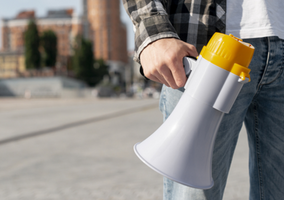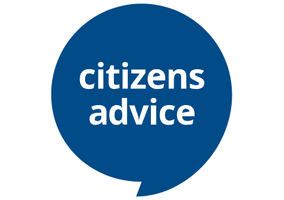I want to talk about trust. I don’t know about you, but when I’m feeling frustrated, angry, or vulnerable I have a small but consistent call-sheet of people in my inner circle who know me well and who understand what I need. If someone in that inner circle were to suggest a podcast, a book, an expert’s view or a therapist’s phone number I’m infinitely more likely to look into that than the recommendation of a stranger. Such is human nature. Trust is earned and held by a few.
When thinking about what makes a community safe, strong and resilient, particularly when faced with a crisis or severe or sudden shock as we’ve seen in the last fortnight, every individual in that community needs to be able to turn to their own supportive call-sheet; the network of people they can truly trust not to judge, not to make things worse, not to put them into further danger.
We cannot expect people, particularly in a position of stress, vulnerability or danger, to follow guidance or advice from a faceless authority – not unless their faith in that guidance has been reinforced to them by people they already trust.
Two weeks ago, when three young girls – Bebe King, Elsie Dot Stancombe and Alice Dasilva Aguiar – were killed in a shocking knife attack at a summer holiday dance club, we witnessed in real time the power of supportive networks in Southport to galvanise community tragedy into positive action. Sadly, in the days that followed we also saw how networks can harness mistrust to do the opposite, organising and gathering support for violence that later became widespread, using fear, racism and hate to fan the flames.
Power in linking networks
What I am noticing, and became even more apparent last week, is that when different networks of trust connect, there is great power.
Last Wednesday, as social and traditional media reported on an anticipated seismic wave of further violence, many of us felt like a nation held hostage by fear. Huge swathes of us were back to an early-pandemic-like state, where it felt like the only safe space was home. And yet, by the evening, the streets of my hometown and many others around the country lit up with messages of solidarity, safety and belonging. We witnessed the power of community WhatsApp, local support services, faith groups, neighbours and friends, connecting circles of trust until thousands felt safe to step out and stand shoulder to shoulder against violence: love and solidarity won.
Embracing diversity of voice
Even though the violence has subsided (for now), people across civil society are grappling with the challenge of how to recover and rebuild social bridges in the face of such significant division, to help prevent anything like this happening again.
We mustn’t demand all the unique parts of our wonderfully rich, diverse and unequal society – with all its different communities – to conform and act in the same way, all the time, or listen to people they don’t feel represent them. Instead of seeking simplicity and conformity we should embrace the diversity of voice, experience and understanding, and spend our energy looking for new and creative ways to strengthen bonds of trusts between pre-existing networks.
Whether we’re talking about the needs of a particular place, of young people, of refugees, of faith groups, people who are homeless or those with a physical disability or neurodiversity – any community of interest or identity will be part of a network that is brimming with honed expertise and understanding of the unique needs of its members. They have a trusted bond and are our best chance of building bridges that silence hate and prejudice.
The VCS Emergencies Partnership provides one of the spaces for different voices to come together. The partnership is a ‘network of networks’, bringing together 300 organisations, and each of their circles of trust, to provide a more coordinated and person-centred response to emergencies. By doing that, we hope people impacted are offered support that meets their needs and respects their rights.
Prioritise three areas
In the aftermath of these heinous events, there are three key things I think our sector and our partners should prioritise;
- Leadership: At every level of civil society we need leaders who recognise the power of networks and how to connect them. Leaders must make space to understand and hear diverse voices and experience and should also be skilled in listening to, navigating and celebrating the complexity of multiple networks.
- Solidarity: Those spreading hate and division are the minority. The outpouring of support and solidarity that was shown last Wednesday and since – is incredible. But we need to remember that we must be proactive – actively anti-racist, and use our networks of love, strength and acceptance to silence the hate.
- Changing the narrative: Much media and political discourse in recent years has relied on tribalism and scapegoating, with too few voices telling too narrow a story. We need a new whole-of-society narrative that celebrates the contributions of people from across our diverse and multi-cultural society, creating platforms for different voices and experiences.
We should allow the last two weeks to shock us. But we should also use it to re-energise us. Let’s take bigger steps to connect with others and use our network of networks to rebuild a safer, more connected and more resilient Britain.
Related Articles












